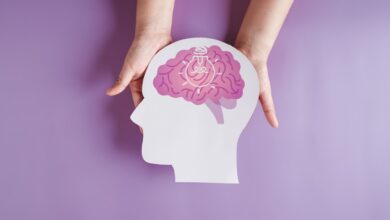Foundations of Connection: A Guide to Building Healthy Relationships

Relationships are essential for our mental, emotional, and physical health. They help us to feel connected and supported, as well as provide opportunities for personal growth. Building healthy relationships is an important skill that everyone should be aware of in order to foster strong, meaningful connections with others. In this article, we will explore the steps involved in creating and maintaining healthy relationships.
The process of building a successful relationship begins with self-reflection; it’s important to understand your own values, beliefs and needs before you can begin to build a connection with someone else. Once you have identified what matters most to you, then you can start looking for people who share similar values or interests. By being honest about yourself and open-minded towards potential matches, you increase your chances of finding compatible partners who could lead to lasting relationships.
Once you’ve found someone whom you’d like to form a relationship with, communication is key! Establishing trust through effective communication is integral when it comes to developing any kind of bond. This involves listening attentively and speaking respectfully while expressing yourself openly and freely without fear of judgment or criticism. With these tools at hand, anyone can create fulfilling relationships based on mutual understanding and respect.
What Is A Healthy Relationship?
A healthy relationship is an interpersonal connection that provides support, security and care. It is a reciprocal partnership characterized by mutual respect, communication, trust, and understanding. However, many people may still ask what makes a relationship so ‘healthy’? Well, it goes beyond just being free of physical or verbal abuse; it involves having the skills to effectively communicate with one another in order to create positive outcomes for both partners.
Having shared values and goals can also help build a strong foundation for any relationship. When two individuals have similar beliefs or ambitions they are more likely to be motivated to work together towards their objectives as opposed to competing against each other which could lead to feelings of resentment or envy. Additionally, having meaningful conversations about life experiences gives both parties the opportunity to learn from each other and grow closer emotionally. In turn this strengthens their bond even further which creates greater stability over time.
With an open exchange of ideas and emotions between two people comes great potential for growth but without proper boundaries, these same qualities can easily become problematic if not addressed properly. Therefore it’s important to identify unhealthy relationship dynamics before they begin causing harm within the relationship itself.
Identifying Unhealthy Relationship Dynamics
The signs of an unhealthy relationship may not be obvious right away, but with the right perspective, they can become clear. It’s like looking into a pool and seeing your reflection appear in rippling waves – once you know what to look for, it’s easy to spot.
An unhealthy relationship dynamic is one where neither partner is able to express themselves openly without fear or manipulation. If someone feels as though their opinion isn’t valued, that they have no say in decisions being made, or if there are power imbalances present, then these could all point towards an unhealthy relationship. This doesn’t just apply to romantic relationships either – friendships and familial bonds can suffer from this too.
One way to identify such a dynamic is by assessing how much respect each person has for one other. Respect means listening carefully when others speak and responding appropriately; it also involves not belittling people’s feelings or thoughts, even if you don’t agree with them at first glance. TIP: When doubts arise about the healthiness of a relationship dynamic, take some time out for self-reflection so that any issues can be addressed quickly before things worsen further down the line. Doing this will help foster stronger boundaries and make communication more effective over time as both partners feel respected and heard.
Developing Communication Skills
Ah, the wonderful world of relationships! Of course, in order to ensure a healthy one, it’s essential that communication skills are developed. You’d think this would be as simple as two people having an honest conversation – not so much! Communication with our significant others is almost like entering into a minefield; you never know when something could go off and blow up in your face.
The first step towards developing good communication skills is understanding what needs to be communicated. This means being clear on the message we want to convey, rather than expecting them to read our minds. We should also take care to listen actively and empathically instead of just waiting for our turn to talk or defending ourselves right away. A key component here is expressing emotions without attacking each other – no name-calling allowed!
It’s also important to remember that while disagreements happen in all relationships, they don’t have to mean disaster if both parties remain open-minded, respectful and willing to work through them together using effective problem solving techniques. Learning how to express our opinions without getting defensive can make a huge difference in building healthier relationships – even if it does take some practice before we get it right every time.
With these tips for better communication under our belt, let’s move on to creating boundaries and respecting each other…
Creating Boundaries And Respecting Each Other
One of the most important aspects of building healthy relationships is creating boundaries and respecting each other. Establishing a boundary means understanding what behaviors are acceptable to you, as well as being able to communicate those expectations to your partner in an effective manner. Respect involves listening carefully and responding kindly with words, actions, and body language that shows empathy for the other person’s feelings.
When it comes to setting limits or expressing respect, there may be times when one person has difficulty putting their point across clearly or respectfully. For example, if someone feels frustrated by their partner’s behavior they might struggle to express this without resorting to criticism or blame. In such cases, it can help to take some time out from the conversation so both parties involved can cool down before continuing. This pause also gives them an opportunity to reflect on how they want to approach the issue at hand more effectively.
Communicating openly with kindness and care helps create strong foundations for any relationship; however, sometimes we need additional support beyond our own efforts. Seeking professional help can provide tools for addressing conflicts and connecting positively with others in meaningful ways.
Seeking Professional Help
Creating and maintaining healthy relationships can be difficult, but if you are willing to put in the work it can often lead to great rewards. Seeking professional help is one way of ensuring that your relationship stays on track and grows in a positive direction throughout its lifespan. All too often we try to handle issues ourselves without any outside assistance or guidance, thinking that by doing so we will have more control over the outcome – however, this isn’t always the case.
Allusion: Just like an architect planning out a building, couples need to ensure they create strong foundations for their relationship early on so it stands against life’s storms.
Having someone with an objective viewpoint who has experience dealing with similar issues can sometimes provide invaluable insights into our own lives and situations. A therapist or counselor can assist both parties in understanding each other better, helping them build communication skills which will last far beyond the sessions themselves. They may also be able to draw attention to potential pitfalls or offer strategies for managing arguments before they arise – something which could save time, energy and money down the line!
It is important not to think of seeking therapy as giving up; rather, it should be seen as taking proactive steps towards improving your relationship and creating a secure bond between yourself and your partner. It takes courage to admit that you need some external help, but it’s worth considering if these measures might help strengthen the connection between yourselves now and later on into the future.
What Are The Signs Of A Successful Relationship?
A healthy relationship is not only beneficial for both individuals involved, but it can also be life-changing. According to a recent survey by the National Center of Health Statistics, nearly 50% of married couples report feeling high levels of satisfaction in their relationships. So, what are some signs of a successful connection?
When two people have an understanding and appreciation for one another, they’re able to form a strong bond that will last through any obstacles. A few key elements that make up this unspoken contract include:
Communication – Being honest and open with each other about thoughts and feelings.
Listening – Taking time to hear the other person out without judgment or criticism.
Compromise – Working together towards solutions when there’s conflict or disagreement.
Respect – Showing admiration for the individual’s beliefs and values as well as honoring promises made between them.
Trust – Having faith in your partner even during challenging times or difficult conversations.
Support – Standing beside each other no matter what comes along on the journey ahead.
These factors create a foundation where partners can grow closer while staying true to themselves which allows them to become more connected over time. When couples practice these habits consistently, they cultivate a respect that fosters intimacy and encourages exploration into new experiences together. Ultimately, this leads to lasting happiness and fulfillment within the relationship all around!
How Do I Know When A Relationship Is Not Healthy?
Statistics show that over 50% of relationships are unhealthy. This is a shocking statistic that should be taken seriously, as it highlights the importance of understanding how to maintain healthy relationships.
Unhealthy relationships can cause long-term damage and affect psychological well-being; however, they can often go unrecognized or undiagnosed. Symptoms of an unhealthy relationship include: feeling like you’re constantly walking on eggshells around your partner; being overly dependent on one another and not having any alone time away from your partner; feelings of guilt when wanting to spend time with friends or family instead of them; continuously making excuses for their behavior and believing that what they do is normal.
It’s important to remember that there are no ‘one size fits all’ rules when it comes to establishing boundaries in relationships? everyone has different needs and preferences. It is essential to take ownership of your own emotions and recognize if something isn’t quite right within the relationship. A good rule of thumb would be to ask yourself: Does this make me feel safe? If not, then chances are the relationship may not be healthy after all.
TIP: If a loved one confides in you about an unhealthy relationship, be sure to listen without judgment and offer appropriate guidance or support where needed. Being empathetic rather than confrontational allows someone in need to open up more easily about their situation.
How Often Should I Communicate With My Partner?
Communicating with your partner is an essential part of maintaining a healthy relationship. It’s important to stay in touch regularly and express how you’re feeling, as this can help both parties grow closer together. But how often should we communicate?
Well, it depends on the circumstances. If one or both partners are constantly busy due to work or other commitments, then daily communication might not be feasible. In such cases, try setting aside some time each week for meaningful conversations. This could be anything from catching up about each other’s day to discussing plans for the future – whatever works best for you two!
It’s also important to remember that quality matters over quantity when it comes to communicating with your partner. Even if you don’t have much time available, make sure that you take advantage of any moments spent together by really listening and understanding what they say. Showing interest in their life will demonstrate your commitment and appreciation for them which will help build stronger bonds between the two of you. So whenever possible, spend time having meaningful talks and enjoy being in each other’s company!
Conclusion
Building healthy relationships is about understanding yourself and others, learning to communicate effectively, setting boundaries, and respecting each other. It’s a process that requires dedication, trust and patience. With time and practice, we can build strong relationships with those around us – ones based on mutual respect and communication.
We all have different needs in our relationships; it’s important to be honest with ourselves and our partners so we can understand what works best for us both. Being open-minded and willing to compromise helps create an environment where everyone feels safe and respected. When disagreements arise, take the time to talk things through instead of letting them fester – this will help strengthen your relationship even further.



